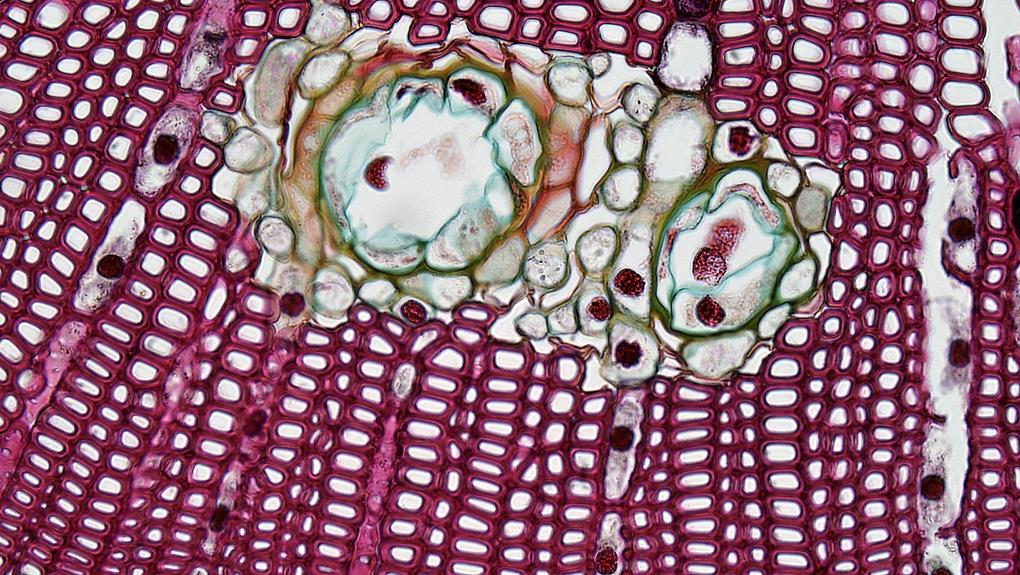
BIOLOGY
Biology encompasses the study of living organisms and their ecosystems, from cells to complex interactions. It explores the diversity in organism form and function and various disciplines within genetics, ecology, and microbiology. Understanding the chemical basis of life, cellular biology, genetics, ecology, and maintaining homeostasis are all vital facets. Unity in biology connects all living organisms through shared cellular structures and genetic information. Additionally, biology offers a wide range of career paths in industries such as healthcare, agriculture, biotechnology, and education. Discover the intriguing history, chemical foundations, and specialized fields within this fascinating scientific domain.
Overview of Biology
An essential introduction to the field of biology reveals its intricate study of living organisms and their interactions within varied ecosystems. At the core of biology lie cells, the basic unit of life, each with its unique structure and function.
Organisms, ranging from single-celled bacteria to complex multicellular organisms like humans, exhibit a remarkable diversity in form and function, showcasing the complexity of biological systems.
Biology encompasses various disciplines such as genetics, ecology, botany, zoology, and microbiology, each focusing on different aspects of living organisms. Understanding the principles of biology is vital as it provides insights into the fundamental processes that sustain life on Earth.
From the molecular mechanisms governing cellular activities to the intricate relationships within ecosystems, biology offers a holistic perspective on the interconnectedness of all living beings.
Advances in biology have not only deepened our understanding of life but have also paved the way for groundbreaking discoveries in medicine, agriculture, biotechnology, and environmental conservation. By studying biology, we unravel the mysteries of life and gain the knowledge needed to address pressing global challenges.
History of Biology
The exploration of the history of biology reveals the substantial contributions made by ancient civilizations and pioneering scholars in shaping our understanding of life sciences. Ancient civilizations like Egypt, Mesopotamia, and Greece laid the groundwork for biological knowledge, emphasizing the observation and classification of living organisms.
The advancement of microscopy by Anton van Leeuwenhoek in the 17th century revolutionized biology by allowing the visualization of cells, supporting the theory that cells arise from preexisting ones.
Cell theory, proposed by Schleiden, Schwann, Remak, and Virchow in the 19th century, defined cells as the fundamental units of life, marking a significant milestone in biological understanding. Evolutionary theories introduced by Darwin, Wallace, and Lamarck further shaped our comprehension of natural selection and genetic inheritance.
Additionally, scholars such as al-Jahiz, Rhazes, and Aristotle made significant contributions to early biology, laying the groundwork for modern biological principles. These historical developments continue to influence contemporary biological research and education.
Chemical Basis
Investigating the chemical underpinnings of biological systems reveals the fundamental elements and compounds essential for life processes. Elements like oxygen, carbon, hydrogen, and nitrogen form the basis of living organisms, while biochemical compounds such as water play vital roles in various biological processes.
Molecular biology, a field that explores biological activities at the molecular level, provides insights into the intricate chemical interactions within organisms. Key elements like calcium, phosphorus, and sulfur are also essential for the proper functioning of organisms.
Understanding the chemical composition of living organisms is critical for comprehending physiological functions, metabolic processes, and overall biological mechanisms. For instance, the Human Genome Project, a landmark initiative in molecular biology, aimed to map the human genome to unravel the genetic composition that underlies human traits and diseases.
Study of Cells
Investigating the intricacies of cellular structures reveals the essential building blocks of life and the detailed mechanisms that govern biological functions. Cell biology, a field dedicated to studying cells, delves into the complexities of these basic units of life.
In both plant and animal cells, membrane-bound organelles and nuclei play vital roles in maintaining cellular functions. While plant cells contain unique organelles like chloroplasts for photosynthesis, animal cells showcase specialized structures for various physiological processes.
The study of cells extends beyond individual units to explore cell types, their organization, and interactions within multicellular organisms. Cell division and reproduction are essential processes that drive growth, development, and tissue repair.
Additionally, cellular processes such as metabolism, signaling, and transport are fundamental in understanding the intricate functions of living organisms. Even bacterial cells, lacking membrane-bound organelles, contribute significantly to various biological processes, highlighting the diverse roles cells play in maintaining life’s delicate balance.
Genetics
Exploring the intricate world of genetics reveals the underlying mechanisms governing heredity and variability in living organisms. Genetics, the study of heredity and variation, focuses on genes as the units of heredity located on DNA. Genes contain the instructions that determine an organism’s traits, playing a significant role in inheritance patterns and genetic diversity within populations. Mutations in genes can lead to genetic disorders and contribute to the variability seen in species.
Understanding genetics is essential for comprehending how traits are passed down from one generation to the next. It involves studying genetic mutations, inheritance mechanisms, and gene expression processes.
Evolutionary Processes
Evolutionary processes explore the dynamic changes and adaptations observed in populations over successive generations. These processes, central to evolutionary biology, involve mechanisms such as natural selection, genetic variation, and adaptation.
Charles Darwin’s theory of evolution by natural selection laid the foundation for understanding how species evolve and diversify over time.
One significant outcome of evolutionary processes is speciation, the formation of new species. Speciation can occur through various mechanisms, including geographic isolation and genetic drift, leading to the development of distinct species with unique characteristics.
Evolutionary biology investigates the genetic basis of traits, the impact of mutations, and the patterns of biodiversity that emerge as a result of evolutionary processes.
Evidence supporting these concepts is drawn from various sources, including fossil records, comparative anatomy, and molecular genetics. These sources provide valuable insights into the mechanisms driving evolution and the interconnectedness of all living organisms on Earth.
Biodiversity
Biodiversity, an essential aspect of ecological systems, encompasses the wide array of living organisms present within a given habitat or ecosystem. This includes organisms such as bacteria, which play pivotal roles in nutrient cycling and ecosystem functioning.
Population biology, a key component of biodiversity, focuses on understanding the dynamics of different species within a population and their interactions.
The richness of biodiversity is not only seen in the variety of species but also in the genetic diversity within those species. This genetic diversity is crucial for species’ adaptation and resilience to environmental changes.
Biodiversity provides necessary ecosystem services such as pollination, water purification, and climate regulation, which are critical for sustaining life on Earth.
However, the loss of biodiversity, often due to human activities like habitat destruction and climate change, can lead to ecological imbalances, reduced resilience, and potential species extinction.
Conservation efforts are aimed at protecting and restoring biodiversity through habitat preservation, sustainable practices, and species protection programs to safeguard the continued health and stability of ecosystems.
Ecological Systems
Ecological systems encompass the intricate interactions between living organisms and their surrounding environment. These systems include both biotic components, such as plants and animals, and abiotic factors. Ecological studies explore the relationships between living things and their surroundings, investigating concepts like energy flow, nutrient cycling, and population dynamics within ecosystems.
Conservation efforts play a vital role in safeguarding ecological systems from human-induced impacts. By understanding the delicate balance within these systems, conservationists can work towards preserving biodiversity and maintaining the health of ecosystems.
Sustainable management of natural resources is another key aspect influenced by insights gained from studying ecological systems. By recognizing the interconnectedness of all living things, we can make informed decisions to safeguard the longevity of our environment for future generations.
Importance of Homeostasis
The maintenance of homeostasis is essential for the peak functioning and survival of living organisms. Homeostasis refers to the ability of organisms to regulate internal conditions, such as body temperature, pH levels, and nutrient balance, within a narrow range despite external changes.
This process is critical as it enables organisms to adapt to varying environmental conditions, ensuring that their cells can function at their best. Homeostasis involves intricate physiological mechanisms, including feedback loops that monitor and adjust internal parameters to maintain stability.
When homeostasis is disrupted, it can have detrimental effects on the health and well-being of organisms, potentially leading to diseases and other complications. French physiologist Claude Bernard introduced the concept of homeostasis in the 19th century, highlighting its significance in understanding the internal regulatory processes of living organisms.
Unity in Biology
In biology, a fundamental concept that underscores the interconnectedness of all living organisms is the inherent unity shared among them. This unity is evident in the fundamental building blocks of life, cells, which serve as the basic structural and functional units across all species. Cells exhibit remarkable similarities in their structures and functions, regardless of the organism they belong to, emphasizing the common principles that govern life.
Moreover, genetic information plays a pivotal role in highlighting the unity in biology. DNA, the universal genetic material, carries the instructions for the development, functioning, and reproduction of all living organisms. This shared genetic code across different species underscores the fundamental unity in the molecular basis of life.
Additionally, the theory of biogenesis, as proposed by Rudolf Virchow, further reinforces this unity by stating that all cells originate from pre-existing cells, emphasizing the continuity and interconnectedness of life at a cellular level.
Career Paths in Biology With Annual Salary
There are many career paths in biology, each with varying salary ranges. Here are some common biology-related careers along with their approximate annual salaries in the United States:
- Biologist: Biologists study living organisms and their interactions with each other and their environment. Median salary: $82,840 per year.
- Microbiologist: Microbiologists study microorganisms such as bacteria, viruses, algae, and fungi. Median salary: $75,650 per year.
- Biochemist: Biochemists study the chemical processes and substances that occur within living organisms. Median salary: $93,280 per year.
- Environmental Scientist: Environmental scientists study the environment and how living organisms interact with it. Median salary: $71,360 per year.
- Wildlife Biologist: Wildlife biologists study animals and their habitats. Median salary: $63,420 per year.
- Genetic Counselor: Genetic counselors work with individuals and families to assess the risk of genetic disorders and provide guidance and support. Median salary: $81,880 per year.
- Pharmacologist: Pharmacologists study the effects of drugs on biological systems. Median salary: $86,790 per year.
- Marine Biologist: Marine biologists study marine organisms and their ecosystems. Median salary: $63,420 per year.
These salary figures are approximate and can vary based on factors such as location, experience, education level, and specific job responsibilities.
Diversifying beyond traditional laboratory roles, biology graduates can pursue a multitude of career paths across various industries, utilizing their expertise in the field to make significant contributions to society. Graduates can explore specialized areas such as agriculture, health care, biotechnology, education, environmental conservation, research, forensic science, policy-making, and science communication. These career paths offer opportunities for professionals to apply their biological knowledge in diverse settings, reflecting the versatility and importance of the field.
In many instances, pursuing a career in biology may require additional education or specialization to advance in specific roles or sectors.
However, the wide range of career options available within biology showcases the breadth of opportunities for graduates to contribute to the advancement of science and society.
With a high placement rate for biology graduates, exemplified by UMD’s success in nearly all students finding employment or furthering their education in graduate programs, the field continues to attract individuals seeking rewarding and impactful career paths.
- WILDLIFE THEMED T-SHIRTS
Cute Hedgehog Embroidered: Love Wildlife, Protect Nature Wildlife conservation tees
$35.00






